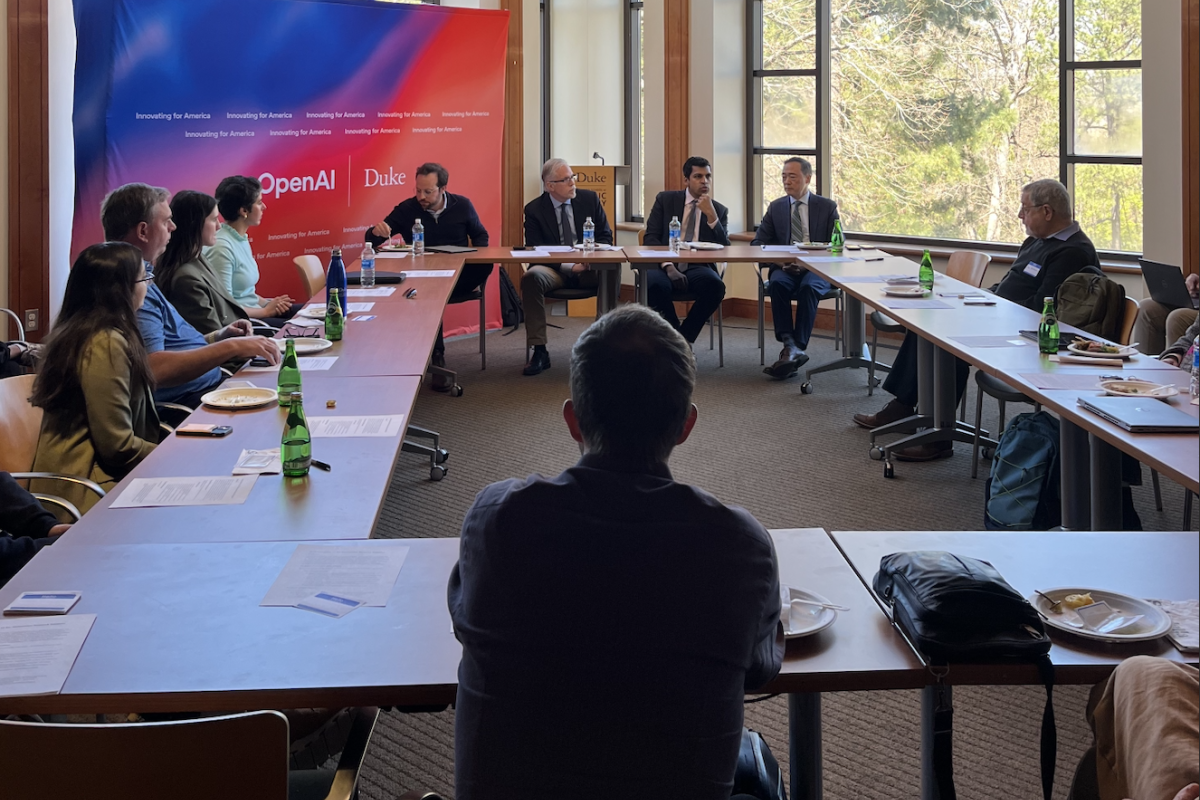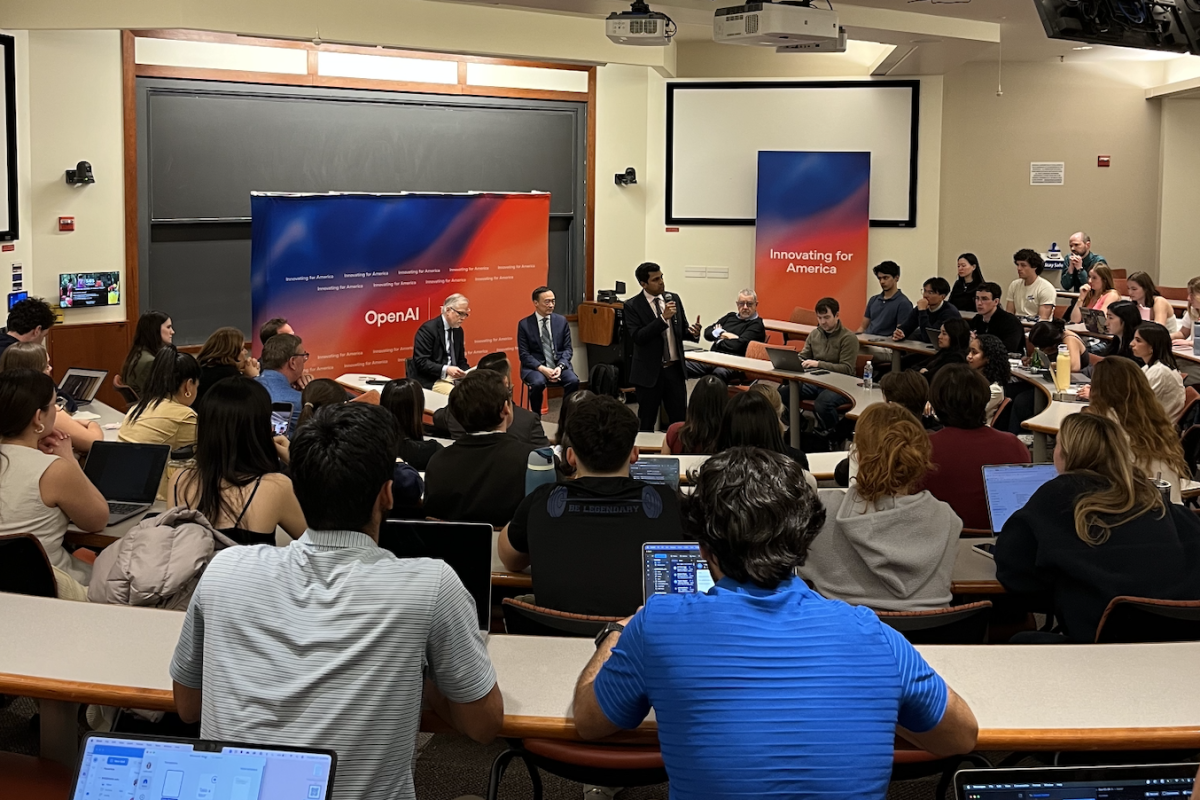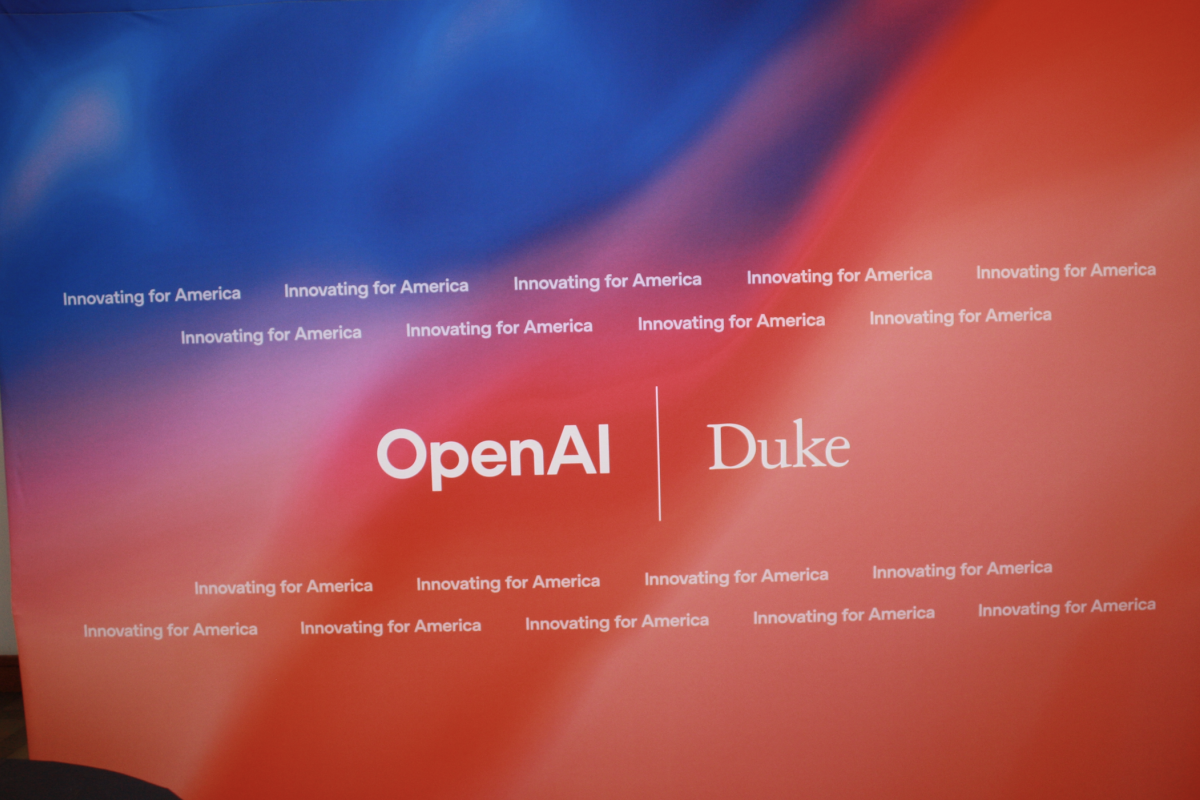Blog
Duke and OpenAI Launch AI for Metascience Initiative with Campus Events on March 27
On March 27, Duke University’s Deep Tech program hosted two major events with senior leaders from OpenAI to mark the official launch of a new research partnership focused on AI for Metascience - an ambitious initiative exploring how artificial intelligence can transform the way we conduct scientific research.
A Collaborative Lunch to Kick Off the Initiative
The day began with an interdisciplinary lunch that brought together students and faculty from across the university, including those working in computer science, medicine, public policy, neuroscience, and the humanities. The conversation centered on how AI, especially large language models like GPT, can improve the research process itself by shortening feedback loops, accelerating progress, and making science more efficient.
Leading the discussion was James Donovan, a member of OpenAI’s Moonshots team in Research and Development, alongside Ronnie Chatterji, OpenAI’s Chief Economist and Duke professor, and Chan Park, Head of U.S. and Canada Policy and Partnerships at OpenAI. The group emphasized the importance of metascience, the study of the science of science, and how AI can not only support scientists but also help policymakers and institutions better understand and shape the research ecosystem.
Faculty members shared early-stage project ideas they are considering submitting to the initiative, and the Deep Tech Program officially announced the release of its Request for Proposals (RFP). The lunch set the tone for a collaborative, open partnership that blends research, ethics, and public engagement.
Fireside Chat: Chan Park and David Hoffman on AI, Policy, and the Public Sector
Later that day, Duke Professor David Hoffman hosted a fireside chat with Chan Park at the Sanford School of Public Policy. Park spoke candidly about OpenAI’s evolving relationship with academia and government, and the company’s commitment to involving universities like Duke in defining the responsible future of AI.
A key takeaway from the conversation was Park’s belief that no one, OpenAI included, has all the answers when it comes to the future of AI. That uncertainty is what prompted the creation of NextGenAI, a new consortium of 15 leading universities, each focused on different scientific domains. Duke’s role will be to lead research in AI for metascience.
A highlight of the conversation centered around OpenAI’s growing engagement with the public sector. Park spoke about his work educating and informing policymakers about AI. He sees Duke’s research playing a similar role, helping policymakers navigate AI tools and understand the future landscape of AI development. OpenAI has already taken steps to better engage with the public sector. It recently launched a pilot program with the North Carolina Department of the State Treasurer and earlier this year released ChatGPT Gov, a tailored version of ChatGPT for government use. According to Park, there’s real momentum in the public sector to adopt AI tools, albeit with proper safeguards.
The discussion also touched on OpenAI’s broader policy priorities. Park discussed the importance of access to training data and computing power to advance AI models. He argued that policies ensuring the availability of such resources are vital for American innovation and national security. Park warned of the dangers of U.S. adversaries overtaking U.S. leadership in AI development and underscored the need to invest in domestic infrastructure, including chip manufacturing and energy systems.
The research on AI for metascience may generate more questions than answers. But as Park advised students, it is crucial that we engage with AI in one way or another as it reshapes our society.
As part of the initiative, OpenAI and Duke are now accepting proposals for collaborative research projects that explore the technical, ethical, and societal dimensions of AI in science. Submissions are due by May 9, 2025.


